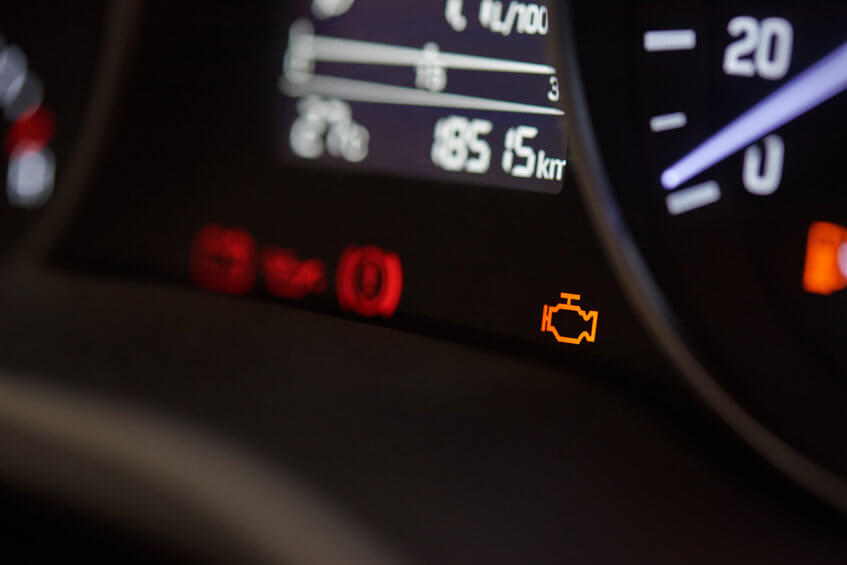Summer is well and truly here. While it’s a relief to no longer worry about winter driving, summer comes with its own automobile problems. To help you stay safe on the road this summer, we’re going to cover those that frequently occur as well as the most common causes of summer breakdowns.
The Check Engine Light
Whether you’re on your way to the beach, a barbeque, or your office, there’s nothing worse than sliding behind the wheel, starting your car, and seeing the dreaded check engine light come on.
The frustrating part of having the check engine light come on is that it doesn’t point to a specific issue. There are a variety of problems that might cause the light to turn on. Some are easy fixes you can take care of yourself, while others might require an expensive and time-consuming trip to your mechanic.
Heat—the kind found in a Massachusetts parking lot in July, for example—can put stress on critical engine components, leading to damage.
If your check engine light comes on, don’t wait. Pullover or pause your plans to get it taken care of right away.
A Flat Tire
Unlike a nebulous engine issue, a flat tire is pretty apparent. That doesn’t make it any less inconvenient, especially if you don’t have a spare or don’t know how to fix a flat yourself.
There’s usually a lot of road construction going on during the summer, causing rough, uneven driving surfaces as workers tear up and redo the roads. As a result, your tires might sustain damage.
To help prevent flat tires, we recommend checking your tire pressure every month. You should also keep an eye on your tire treads. As they wear down, your traction decreases, and the likelihood of a flat increases.
Your Engine Overheating
The last of the common causes of summer breakdowns we’ll be covering is an overheated engine. Your engine works hard, especially in the heat of the summer. Sometimes, the heat gets to be too much.
When that happens, an indicator light will come on. You might also see steam coming from the hood of your car.
Keep an eye on your coolant levels to help prevent your engine from overheating. If overheating occurs and it’s safe for you to do so health-wise, turn your heat up, find somewhere secure to pull over, and wait. We recommend giving your car at least 15 minutes to cool down. Then, try restarting it.
NE Insure is here to serve you. Make an appointment today to discuss all of your insurance needs, auto or otherwise.


